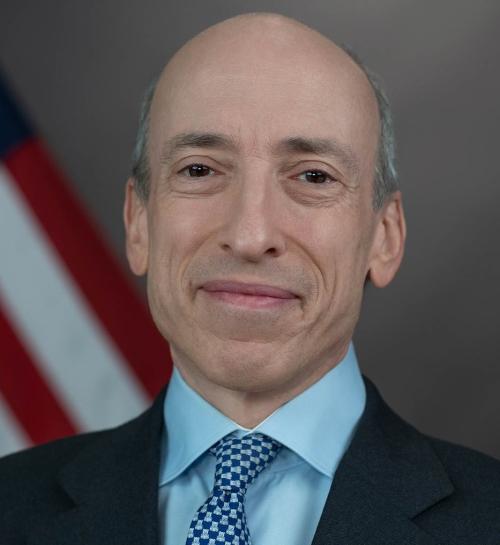– Bloomberg reported that Norway’s $1 trillion sovereign wealth fund – the world’s largest – signaled it will get tougher in weeding out companies from its portfolio that don’t live up to anti-corruption standards it has set. ‘Data on corporate governance and sustainability can influence our investment decisions,’ CEO Yngve Slyngstad said. ‘Our goal is to reduce the fund’s risk. We want companies to move from words to numbers so we can get a better understanding of financial opportunities and risks.’
Norway’s fund owns 1.4 percent of all listed companies and actively pushes for higher environmental, social and governance standards for its portfolio. ‘We expect all companies we are invested in to have effective anti-corruption measures in place,’ Slyngstad said. The investor is becoming increasingly activist in its approach, with a particular focus on corporate governance issues and voting.
– A special committee of Wynn Resorts said it had hired law firm Gibson Dunn & Crutcher to investigate allegations of sexual misconduct involving former chair and CEO Steve Wynn and to conduct an ‘expanded and comprehensive review’ of the company’s internal policies to ensure ‘a safe and respectful workplace for all employees,’ according to The Wall Street Journal.
Representatives of Wynn Resorts and its board couldn’t immediately be reached for comment about the investigation. Wynn has denied wrongdoing, saying the notion he would assault a woman was ‘preposterous’. Wynn Resorts has said it is committed to maintaining a safe and respectful culture, requires annual anti-harassment training for all and offers an anonymous hotline.
– The SEC’s division of enforcement announced a self-reporting initiative that seeks to protect advisory clients from undisclosed conflicts of interest and return money to investors. Under the share class selection disclosure initiative (SCSD Initiative), the division will agree not to recommend financial penalties against investment advisers who self-report violations of the federal securities laws relating to certain mutual fund share class selection issues and promptly return money to harmed clients.
– The New York Times reported that a female executive at the investment firm run by Steven Cohen said in a lawsuit that the company was a testosterone-fueled ‘boys’ club’ in which men commented on women’s bodies, belittled their abilities and paid them less than their male peers. The lawsuit, filed in federal court by a current employee of Cohen’s Point72 Asset Management, describes a toxic working environment for women. Cohen is not accused of inappropriate behavior in the lawsuit.
In a statement, Point72 said: ‘The firm emphatically denies these allegations and will defend itself in a more appropriate venue than the media. We stand by our record of hiring and developing women. In an industry where women are historically underrepresented, the hundreds of women at Point72 are vital members of every part of our organization.’
– According to Bloomberg, the Bank of England (BoE) said banks and other firms may have to meet tougher requirements to manage risks stemming from algorithmic trading in the UK as markets become increasingly computer-driven. Firms would need to test all algorithms before they’re used and review them periodically under new proposals, the BoE said. The central bank may also require each firm to have a ‘robust’ internal approval process before an algorithm could be used as well as to keep an inventory of the mathematical models and risk controls.
UK regulator the Financial Conduct Authority said some firms lack suitable oversight and testing of algorithms, even as trading is increasingly dominated by electronic strategies.
– The WSJ reported that Xerox defended its deal with Fujifilm Holdings in a letter to shareholders after activist investor Carl Icahn said he would vote against the merger. The US company last month struck a deal to merge itself with a joint venture it has run with Fujifilm for more than 50 years and give the Japanese company majority control of the new entity.
Icahn and fellow investor Darwin Deason said they plan to vote against the deal. Xerox took aim at the investors’ ‘mischaracterizations’ of the deal, adding that the agreement followed a year-long review of alternatives. ‘That review found that the transaction, as currently proposed, delivers significantly more value to Xerox shareholders than would be achievable on a stand-alone basis,’ the company wrote in its letter
– According to the Financial Times, the Financial Industry Regulatory Authority (Finra) is exploring whether the Cboe Volatility Index (Vix Index) has been manipulated, intensifying concerns over the US volatility benchmark that was blamed for exacerbating the recent stock market turmoil. Finra is looking at whether traders have tried to move around the Vix to influence the prices of derivatives based on the benchmark, according to people familiar with the matter.
‘Cboe has a dedicated regulatory department that works with Finra to monitor certain trading activity for our securities markets, including trading activity that could impact the Vix settlement,’ Greg Hoogasian, Cboe’s chief regulatory officer, said in a statement.
– The WSJ said AT&T is considering an unusual bid to seek testimony from the US Department of Justice’s (DoJ) antitrust chief in the coming trial over its $85 billion purchase of Time Warner as part of the companies’ effort to challenge the legitimacy of the government’s lawsuit. AT&T has publicly questioned the department’s motives in light of President Donald Trump’s campaign pledge to disallow the deal and his repeated disparagement of CNN, a unit of Time Warner.
AT&T and Time Warner have drafted a list of people they may put on the witness stand at trial, and, according to people familiar with the matter, the roster includes DoJ antitrust chief Makan Delrahim, a Trump nominee who made the decision to challenge the deal in court. Delrahim has pledged to keep politics out of enforcement decisions and has said he didn’t talk to the White House about the deal.
– Bloomberg reported that Edith Cooper, the former head of human resources at Goldman Sachs, is joining the board of Slack Technologies. Her appointment is one of several recent changes the corporate software startup has made to run itself more like a public company. Cooper is Slack’s second independent board member, and also the second woman. Sarah Friar, CFO at Square, joined the board of the San Francisco company in the spring.
– Toshiba has turned to an outsider to lead the company for the first time in half a century, according to the FT.
The company’s board on Wednesday named Nobuaki Kurumatani, the president of the Japanese arm of European private equity group CVC Capital Partners, as its chair and CEO. Satoshi Tsunakawa will continue to be Toshiba’s president while also taking on a new role as COO. The appointments will be effective from April.
– The WSJ reported that, according to people familiar with the matter, the board of Thomson Reuters recently pressed ahead with plans to sell a piece of its business to Blackstone Group for $17 billion despite Thomson Reuters’ chair’s concerns that directors had failed to seek a higher price or consider other potential buyers. David Thomson, who is board chair, began airing his objections to other directors after the board started to review Blackstone’s offer in November, but most of them disagreed, the people said.
Thomson did not respond to requests for comment. Thomson Reuters declined to comment. A Blackstone spokesperson had no immediate comment on Wednesday.
– Reuters reported that the SEC killed the politically sensitive sale of the Chicago Stock Exchange (CHX) to a group led by China-based investors, saying a lack of information on the would-be buyers threatened the ability to properly monitor the exchange after the deal. The SEC staff initially approved the sale of the privately owned exchange in August but, within minutes of the announcement, commissioners led by chair Jay Clayton, a Trump appointee, put the decision on hold for further review.
The attempted acquisition was led by Chongqing Casin Enterprise Group, a privately held company. Casin, through CHX, has denied any affiliation with the Chinese government and no connections have been shown. CHX declined to comment on the final decision.
– The SEC appointed Kyle Moffatt as chief accountant in the agency’s division of corporation finance. Moffatt has served as acting chief accountant in the division since January 2018, overseeing its work to assist companies with the implementation of revenue recognition and to develop its approach to reviewing companies’ disclosures. Moffatt has also led the division’s efforts in evaluating the implications of recent changes to the tax laws and developing guidance for public companies.
– Reuters reported that the DoJ reached a $613 million settlement with US Bancorp over allegations it willfully failed to have an adequate anti-money laundering (AML) program. As part of the settlement, US Bancorp agreed to forfeit $453 million and to pay fines to the US Department of the Treasury, Office of the Comptroller of the Currency and Federal Reserve.
The DoJ said the bank, through its subsidiary US Bank National Association, deliberately ran an inadequate AML program from 2009 to 2014. US Bancorp failed to detect large numbers of suspicious transactions and concealed its missteps from regulators, the department said. ‘We regret and have accepted responsibility for the past deficiencies in our AML program. Our culture of ethics and integrity demands that we do better,’ president and CEO Andy Cecere said in a statement. Under the settlement, the DoJ agreed to dismiss the charges against the Minneapolis-based bank in two years if it meets the terms of the agreement. The bank said it has overhauled its AML policies in recent years to address the issues.
– According to the WSJ, the largest investor in Avis Budget Group is launching a fight to shake up the car-rental company’s board of directors. SRS Investment Management said it would seek a total of five seats on the board, including two members it appointed to the 12-person board in a 2016 pact. Last month, Avis Budget implemented a poison pill to block SRS from exceeding 15 percent of voting stock after the company and SRS failed to reach a new agreement to avoid a proxy fight.
In a statement, Avis said it has delivered ‘superior’ results for investors and defended the board. It said SRS has been supportive of management and the current strategic plans. Avis has been seeking to refresh its board and has already hired a search firm.









